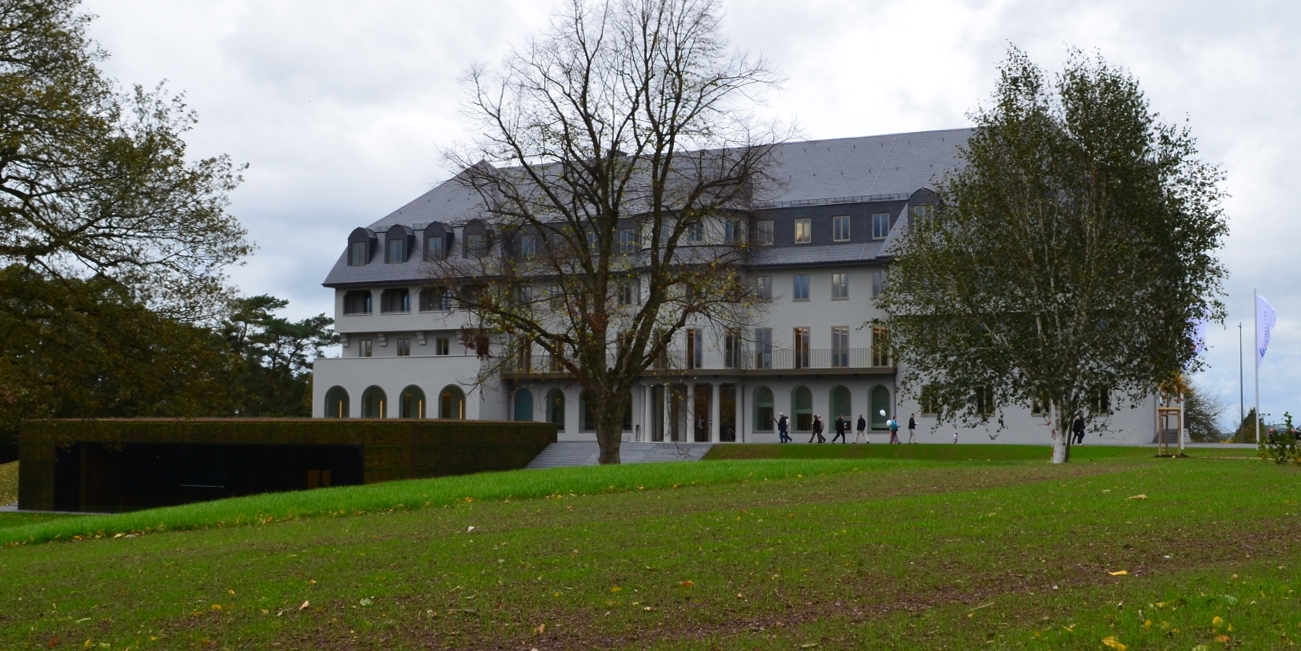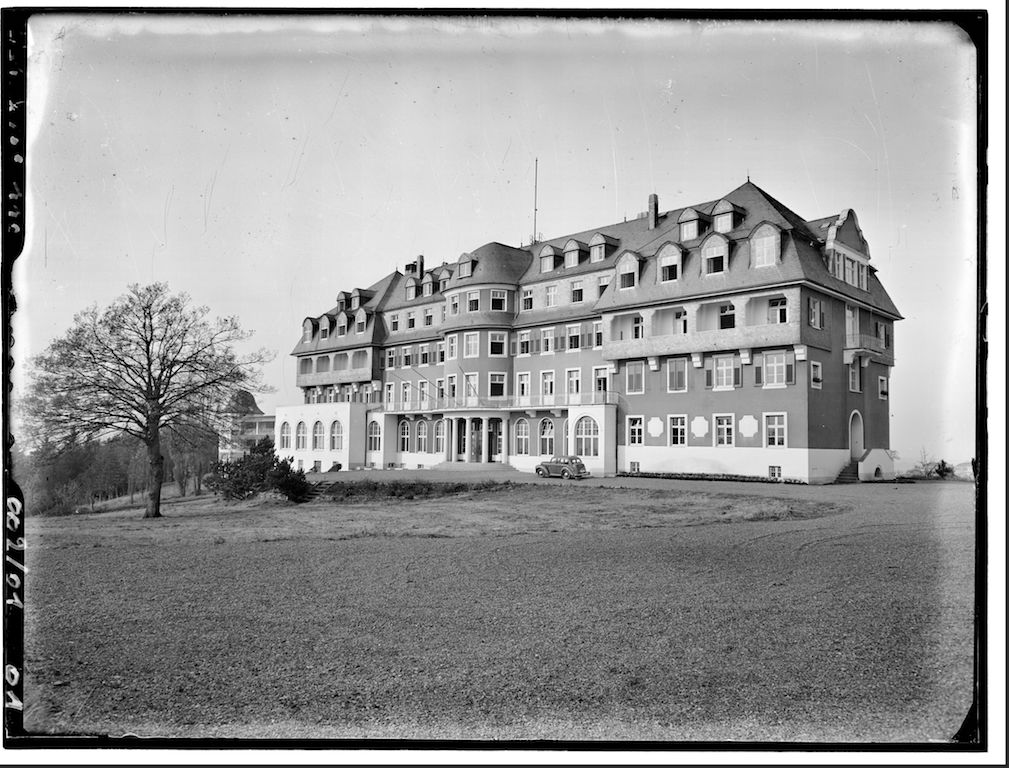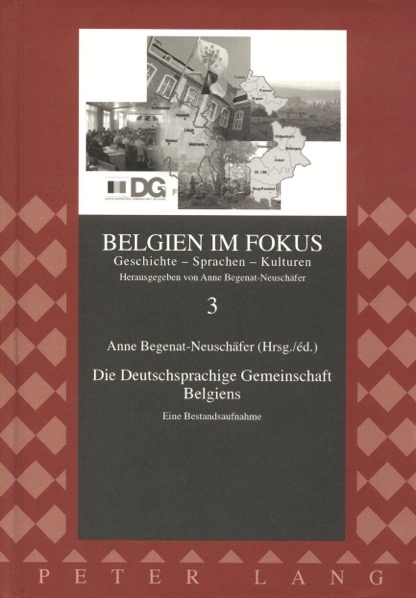-
So far, six state reforms (1967-1971, 1980-1985, 1988-1992, 1993, 2001 and 2012-2014) have transformed Belgium from a central state into a federal state. With each reform, the powers and resources of the Council of the German Cultural Community (Rat der deutschen Kulturgemeinschaft, RdK, 1973-1983), the Council of the German-speaking Community (Rat der Deutschsprachigen Gemeinschaft, RDG, 1983-2004) and then the Parliament of the German-speaking Community (Parlament der Deutschsprachigen Gemeinschaft, PDG, since 2004) also grew. An increasing number of decisions are taken locally: questions of teaching and education, monuments, media, health, employment, and social policy. Due to the growing responsibility and more complex political problems, the East Belgian political landscape has become increasingly professionalised.
The guiding principles of these state reforms were federalism and subsidiarity. Through federalism, the Belgian state wanted to divide its power between the federal state and the federal entities (called communities and regions). The concrete meaning of subsidiarity, in this context, is that centralised tasks were handed over to regional institutions on the ground, in that hope that they could be better fulfilled there.
At the same time, the political landscape in East Belgium was changing: on the one hand, there was a generational change. The leaders who had helped build the autonomy were replaced by younger politicians. This generation grew into a parliamentary setting in which the PDG had extensive competences, while the old, historically grown tensions between the parties had lost their significance. Yet, the Christian Social Party (CSP) had led every government coalition until 1999. From the 1999 years onwards, other parties took over, and pushed the CSP onto the opposition benches. New parties have also emerged and established themselves.
In 1998, all the parties in the council presented a joint demand to the federal government for further expansion of autonomy for the first time. This also included a demand for the transfer of regional powers. The period of cacophony in East Belgian politics was over.
Time and again, the PDG demanded more powers. In 2007, all the parties sitting in parliament unanimously passed a resolution outlining the vision for the future of German-speaking Belgians: remaining in a federal, Belgian state, with the German-speaking community on equal footing with the others – and within the European Union. This vision was reaffirmed in 2014 by a declaration of principles to which all parties except a marginal, sectarian party subscribed. The people’s representatives argued for a ‘Belgium of Four’. In the future, East Belgium should develop into a federal entity, holding the combined powers a community and a region (similar to Flanders). This declaration of principles aimed at reducing bureaucracy and making decision-making processes more transparent. According to the will of the East Belgian parties, they likewise strove to dismantle other state structures such as the provinces, which have existed since 1830.
Politicians of the German-speaking minority continually face fundamental questions:
- How expensive can or should autonomy and minority protection be? A concrete example: must every law of the Walloon Region or the Belgian federal state also be translated for German speakers?
- How far must autonomy and minority protection go? A concrete example: Does the minority need secure representation in the Belgian Chamber (the national parliament), as this is the only way it can represent its interests in national politics?
- What happens if the economically strong areas cancel the principle of solidarity within the federal state? A concrete example: can a minority survive independently of the majority?
Yet, practical questions are also important:
- Belgium will continue to change institutionally. Should East Belgium administer further powers itself or power-share them through cooperation?
- Will East Belgium be able to recruit the specialised personnel necessary to take on further responsibilities?
Consequently, federalism only works through solidarity. And this needs to be finely balanced.
Autonomy strengthened the development of the formerly rural and structurally weak areas of East Belgium. While the Eupen region benefits from its proximity to Liège, Maastricht, and Aachen (unemployment rate 2016: 10.8 %), the Belgian Eifel region has almost full employment due to its proximity to Luxembourg (unemployment rate 2016: 4.3 %). Unemployment in East Belgium (2017: 7.3 %) is slightly below the national average (2017: 7.8 %).
In terms of transport, the region is connected by the Cologne-Brussels motorway in the north and the Verviers-Trier motorway in the south. Local public transport connections are insufficient. Thanks to small and medium size businesses and to autonomy, many new jobs have been created in recent decades. However, many eastern Belgians commute. In 2014, according to official estimates:
- 3,146 workers found employment in the French-speaking part of Belgium (5,086 Walloons worked in East Belgium), about 6,000 in Germany (about 500 Germans worked in eastern Belgium),
- 60 in the Netherlands,
- 376 in Flanders (389 Flemings worked in East Belgium),
- 322 in Brussels (71 inhabitants of Brussels worked in East Belgium),
- about 4,000 East Belgians commuted to Luxembourg.
- Youth unemployment in East Belgium is at 13 percent (2016).
Against this background, politicians would like to see a self-reliant, economic vision for the future of East Belgium. That is why the German-speaking Community is working together with the Walloon Region, which has these powers. At the same time, East Belgian politicians demand, for example, the power of regional planning in order to be able to set their own priorities in the field of economic policy. However, since taking over the competences for education, the East Belgian parties have also identified education as a key element of their development and economic policy and have implemented numerous measures. Throughout Belgium, dual training, i.e. training in school and in the workplace via apprenticeship, certificates of apprenticeship and master craftsmanship, are increasingly perceived as a strength.
The period between the federalisation of Belgium (1994) and the present has not yet received any attention from historical research. One reason is the thirty-year protection period for archives. However, studies are already emerging from the fields of sociology, political science, and law. Self-observation could be an exciting task for historians in East Belgium.
In recent decades, a development has continued in East Belgium that has its historical roots in the 1970s. Initially, the aim in Belgium was to better organise coexistence between Flemings and Francophones. For the East Belgians, the main concern was to protect the German language and culture in Belgium. This set in motion a dynamic that continued through six state reforms. Today, German speakers are more than ever before responsible for their own future.
-
German language constituency for EU elections
Electoral constituency for European elections
Regional powers
Exercise of regional powers by the German-speaking Community
Establishment of new parish structures
Expansion of the Ravel cycle path network
Foundation of an autonomous college (Autonome Hochschule) in the German-speaking Community
Opening of ‘Triangle’ (cultural centre in Sankt Vith)
-
-
![Belgien im Fokus 3]() Anne Begenat-Neuschäfer (ed.)
Anne Begenat-Neuschäfer (ed.)Die Deutschsprachige Gemeinschaft. Eine Bestandsaufnahme.
Frankfurt am Main 2010 (Belgien im Fokus – Geschichte, Sprachen, Kulturen, vol. 3).
-

1994-2025
Federalism
According to Immanuel Kant, it is very comfortable to be immature. But it was precisely this immaturity of the three cultural communities in Belgium that led to great tensions within the framework of the centralised state in Belgium. For this reason, Belgium has been gradually reformed since 1967. It soon became clear that shaping autonomy required a lot of responsibility from the politicians. In the following, the history of East Belgium illustrates why politics is a game for responsible people – in and beyond East Belgium.

